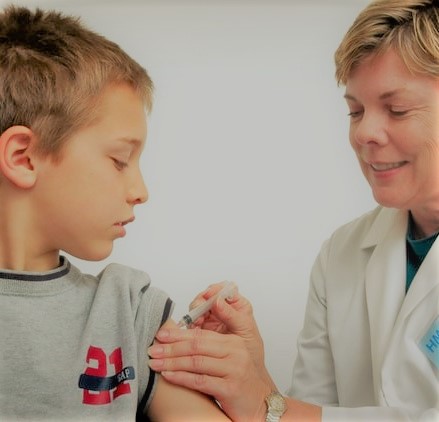As we move from summer into autumn, attention turns to the flu vaccine programme. The winter flu season always sees an increase in the number of hospital admissions, and this year we have the added complication of COVID to contend with.
Why should I get the vaccine?
We know that the flu can be an unpleasant illness in children and cause severe illness or even death among at-risk groups, including older people, pregnant women and people with an underlying physical health condition. The forthcoming winter season is even more of a concern because we don’t yet know how COVID will behave around the flu and other respiratory viruses – and this is the reason why it’s more important than ever to make sure you have your flu vaccine, and do so in plenty of time.
It could help the NHS cope through the winter months with the additional burden that COVID is expected to bring.
The annual vaccination campaign
The campaign is the biggest ever this year, largely due to this ongoing threat of COVID, and the programme for free vaccines on the NHS has been extended beyond the previous categories of:
- pregnant women
- people over the age of 65
- children and adults at greater risk from flu because of underlying conditions such as diabetes, high blood pressure or lung disease
- children and adults with weakened immune systems
to include these additional groups:
- people with certain medical conditions (including children in at-risk groups from 6 months of age)
- people living with someone who’s at high risk from coronavirus (on the NHS shielded patient list)
- children aged 2 and 3 on 31 August 2020
- children in primary school
- children in year 7 (secondary school)
- frontline health or social care workers
Later in the year, the flu vaccine may be given to people aged 50 to 64, but we will know more about this later in the autumn.
We thought it a good time to take a look at the flu vaccine, and dispel some of the myths around it.
Myth 1: the flu vaccine will give me flu
This isn’t true. You can’t catch flu from the vaccine. For adults, it’s a dead vaccine – it contains inactivated virus – unlike the MMR which is a live virus vaccine which uses a weakened form of the virus. Children aged 2 to 17 are offered a live vaccine (LAIV) as a nasal spray but you cannot get the flu from the nasal spray as the live viruses have been weakened.
You may find your muscles are slightly achy and your temperature is higher than normal after you’ve had the flu vaccine but these symptoms should only last a day or two. The nasal spray may cause a runny or blocked nose, headache, tiredness and some loss of appetite, but again these symptoms won’t last very long.
Myth 2: I’ve had it before so I’m covered
This also isn’t true. Each year we see new strains of the flu emerging and virologists use data from other countries to try to predict which strains will be in circulation the following winter. Our immune systems’ response to the vaccination also declines over time so having the vaccine annually helps to optimise your protection against the flu.
Myth 3: if I’ve had the flu vaccine I definitely won’t get the flu
Unfortunately this isn’t correct – and the previous myth is part of the reason for this. There’s a degree of guesswork predicting the strains that will circulate each winter, and you’d need a 100% match on every strain within a vaccine! You may also find that you’d already been exposed to the flu just before your vaccination, so went on to develop the symptoms anyway. Some people may feel like they have flu but they’re actually suffering from other rhinoviruses and the vaccine will not protect against those.
So our message is: if you fall into any of this year’s extended categories for getting the flu vaccine on the NHS, please make sure you do so!





